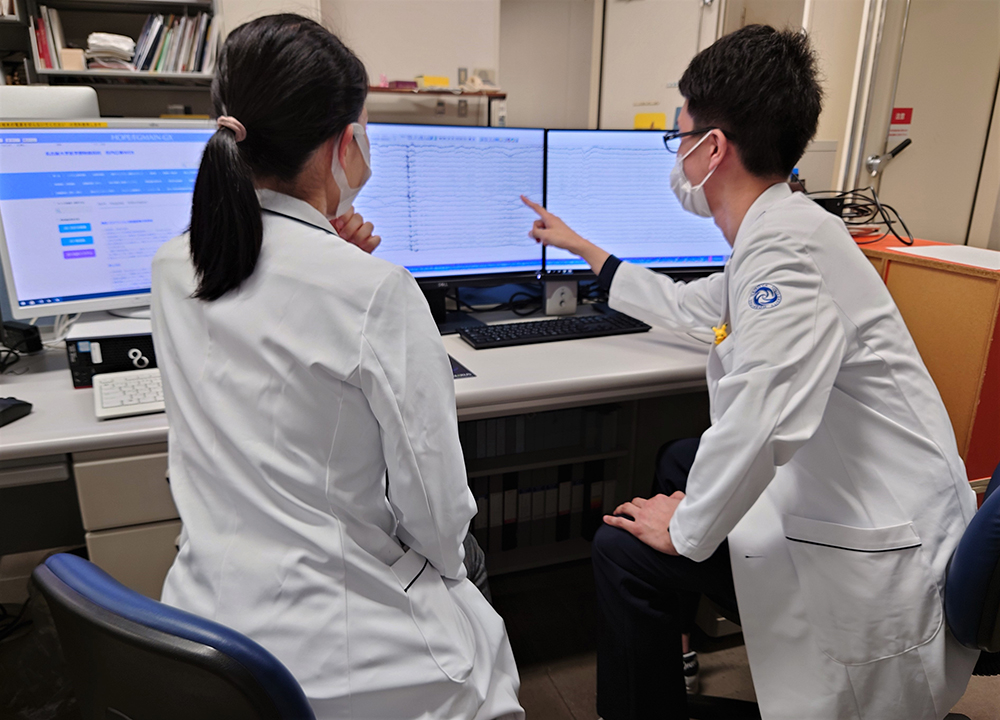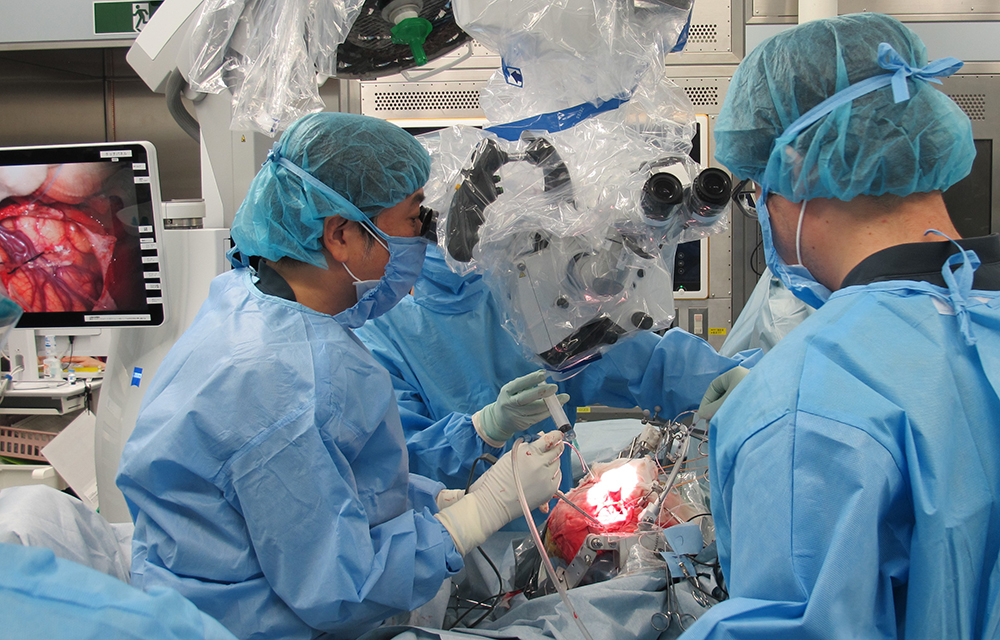Epilepsy Center
Director:SAITO, Ryuta (Professor)
The best care for all epilepsy patients and families.
The Nagoya University Hospital has been designated as the Aichi Prefectural Epilepsy Medical Center Hospital in the national project to improve the regional medical care cooperation system for epilepsy. For this project, Nagoya University Hospital Epilepsy Center provides comprehensive medical care for patients with epilepsy in collaboration with the Departments of Neurology,Neurosurgery and Psychiatry.
Operation System
Various medical specialists such as doctors, nurses, clinical l aboratory technicians, pharmacists, occupational therapists, physical therapists, mental health workers, and clinical psychologists who related to epilepsy treatment work at the Epilepsy Center.
Scope of Medical Services
In addition to clinical departments related to epilepsy treatment, such as neurosurgery, neurology, pediatrics, and psychiatry, we provide multidisciplinary medical care through collaboration with a wide range of specialized divisions of nursing, pharmacy, and clinical examination. We will also train the medical staff.
Features
The diagnosis of epilepsy, especially focal diagnosis, requires many advanced medical devices such as EEG, long-time EEG, high-resol ution MRI, FDG-PET, SPECT, magnetoencephalography, EEG-fMRI (simultaneous EEG and functional MRI recording), and EEG measurement using subdural electrodes or deep brain electrodes. All of these examinations are available at Nagoya University Hospital and Brain and Mind Research Center of Nagoya University.
In addition, the Epilepsy Center functions as a central medical institution in the Aichi Prefectural Epilepsy Treatment and Medical Cooperation Council, which is an organization consisting of the medical specialists, government, patients, and their families in order to provide epilepsy treatment and care and to develop a best medical system.
Medical Service Results
The annual number of epilepsy patients who visit Nagoya University Hospital is about 2,500 at all ages, from newborns to the elderly, of which about 150 are new visit patients. We also perform 15-20 epilepsy surgeries annually.
A case review meeting is held every month to discuss treatment policies for patients with intractable epilepsy among specialists.
Other Undertakings
In addition to treating epilepsy, we also hold seminars for medical professionals and public lectures to deepen knowled geand understandings of epilepsy.







